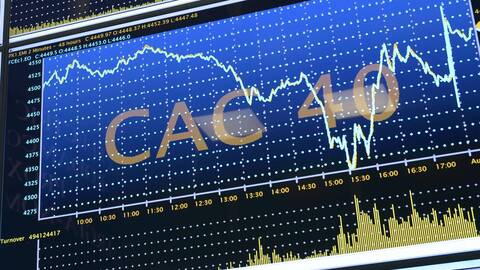(BFM Bourse) – The persistence of inflation shown by the figures published this Wednesday by the American Department of Labor immediately gripped investors.
This is a figure that gives food for thought to supporters of no reduction in key rates by the Federal Reserve (Fed) this year.
The consumer price index, the main measure of inflation, turned out to be more robust than expected in March in the United States, according to figures published by the US Department of Labor and Statistics.
Over one year, inflation stood at 3.5% year-on-year in March compared to 3.2% in February and a consensus of 3.4%, according to economists’ returns compiled by Wall Street. Newspaper.
“Core” inflation, that is to say excluding food and energy prices, stood at 3.8%, higher than the 3.7% expected by economists.
>> Access our exclusive graphic analyses, and gain insight into the Trading Portfolio
State debt yields are tightening
The blood of the market has only gone one round. Government bond yields immediately started to rise again. That on the 10-year American debt security increases by 13 basis points (or 0.13 percentage points) while that on the German bond of the same maturity takes 6 basis points, significant variations on the bond market.
For their part, the markets are taking the hit. The CAC 40, which was up 0.6% shortly before the inflation figures in the United States, fell completely, now losing 0.8% around 3:15 p.m. U.S. index futures are wobbling even more. That on the S&P 500 lost 1.4% and that on the Nasdaq 100 dropped 1.5%.
The euro is unscrewing
The euro plunged by 0.5% against the dollar, the American currency being supported by prospects of less significant rate cuts.
According to CME Group data, investors now assign a probability of more than 70% to just two Fed rate cuts this year (or more accurately an overall cut of 50 basis points), a probability that was much lower before the publication of American inflation.
“In parallel with the increase in job creations (published Friday, Editor’s note), the third consecutive increase of 0.4% over one month in the basic consumer price index has practically destroyed hopes of a reduction in interest rate from the Fed in June”, judges Capital Economics. The market actually only assigns a probability of less than 25% to such a decision.
Remember, however, that the Fed favors an alternative measure of inflation, the PCE index, to make its decisions.
Julien Marion – ©2024 BFM Bourse
